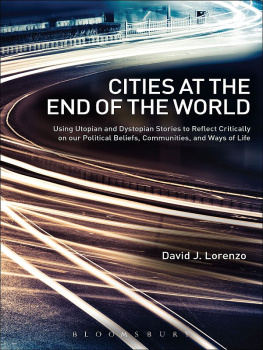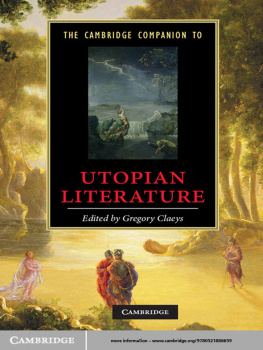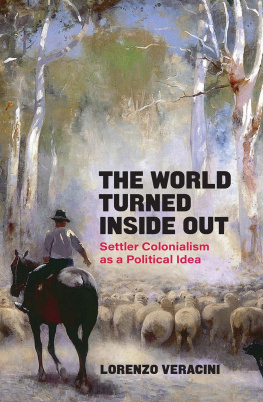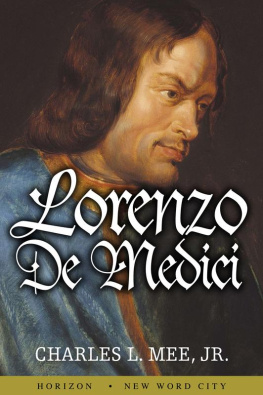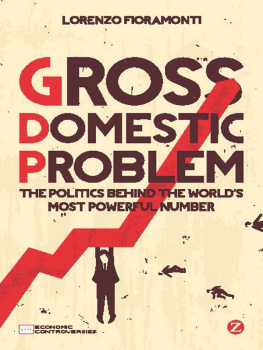My interest in the subject of utopias and dystopias was originally piqued in the early 1980s by a class at the University of Arkansas taught by the late Diane Blair, titled Politics and Literature. The required reading list included Utopia, Brave New World and Nineteen Eighty-Four, three works that immediately caught my attention. I fortunately received the opportunity to pursue this interest at Arkansas when Conrad Waligorski, assisted by Robert Savage, agreed to direct my honors project on George Orwell. At Yale, David Apter looked kindly upon my interest in utopias and encouraged me to write my dissertation on the Aurobindo movement. Consequently, I spent five months in India living in a utopian community, which eventually resulted in a book on Auroville. My deepest thanks to all these scholars for sharing their hard-earned knowledge and passion for these subjects.
My thanks also to the students in my Politics and Literature classes at Virginia Wesleyan College, the syllabus for which informs this book. Additional thanks go to fellow faculty members who provided useful feedback on my talk Rethinking Politics through Utopian and Dystopian Stories, sponsored by the Faculty Forum at Virginia Wesleyan. My gratitude as well to Sarah Tytler of Virginia Wesleyan for reading and providing comments on an early draft of the book, and to Shannon Seylor for doing the same with the final version. I would also like to acknowledge the Batten Endowed Teaching Fund at Virginia Wesleyan College for research funding, and the National Science Council of the Republic of China (Taiwan) for providing the resources for a visiting appointment in the Department of Diplomacy at the National Chengchi University. My thanks also to Dean Chung-chian Teng of the College of International Affairs and Chair Ren-rang Chyou of the Department of Diplomacy at the National Chengchi University for their support and encouragement.
While located in separate chapters and capable of standing alone, the discussions of these stories are meant to be read in pairs: Utopia with Isle of Pines, Looking Backward with News from Nowhere, and We with Nineteen Eighty-Four.
Cities at the end of the world
Thinking through the fundamental elements of politics is always timely, but it is especially so now. Every 30 to 40 years nations rethink themselves. Understandings based on new experiences and events overthrow the prior cluster of views, which were themselves generated and shaped by the experiences of previous generations. The West in general and the United States in particular is now at one of these points. The rethinking generated in the 1960s, which itself replaced the views of the generation that experienced the Depression and World War II, is outmoded. The same is true of the variety of criticisms of this view. We no longer need to come to grips with the Cold War and Vietnam. We are dealing with the triumph of both sides of the culture warsthe right has prevailed in outlawing the consumption of most intoxicating substances, resulting in a high rate of incarceration and the perpetuation of drug wars. The left has triumphed in terms of redefining privacy and expression, ironically resulting in a reinforcement of capitalisms privileging of individualism, a deterioration of public and social solidarity, and a fierce conflict with the government over security requirements in an age of possible terrorist threats.
Consequently, the dichotomies that generated political debates over the past several decades do not necessarily make sense of our political and social environments. Debates over foreign policy take place in the context of American unipolar dominance rather than a bipolar world. Rather than arguing over whether big government or the private sector can deal more effectively with the problems of generating economic growth, eliminating poverty, providing health care, and educating our children, we are faced with the failure of both to perform these tasks and the need to redefine economic well-being and the good life. The science fiction fantasies of computers and technology are now real, as are the economic possibilities of everyone living a relatively affluent life. We inhabit a more economically integrated and culturally pluralistic world than 40 years ago, all the while facing important problems involving pollution, the depletion of global resources, and probable climate change.
I propose that part of our confrontation with these problems be a reading and consideration of the utopian and dystopian stories that previously played important roles in fundamental political debates. The title of this book refers to the idea that utopian and dystopian stories often describe endings. The ends of the world refers importantly to frontiers, in that these stories exist at the limits of our imagination. Ends can also signify the completion of historical journeys, trips that can conclude badly or well. In yet another sense, endings can be the termination of things. Poverty, war, or alienation may cease to exist. But it could be that it is freedom, civilization, or the essential nature of humans that expires. Endings can be good or bad, the result of much hard work and planning, the culmination of a large process, or the outcome of a fortuitous or unfortunate accident. All are relevant to thinking about politics.
As exercises of imagination, accounts of completed journeys or processes and descriptions of how some things may cease to be, utopian and dystopian stories in particular address fundamental questions and dilemmas of life that are important to consideration of the issues and problems we now face. Most importantly, they address the problems of life lived collectively. They are concerned with the dilemmas of the city rather than of a scattered existence, of politics rather than just of individuals. In discussing cities at the end of the world, we engage in a conversation about fundamental political understandings and assumptions. What works and what doesnt work economically, politically, and socially? What is relevant about human nature in the context of community life? What does it mean to live a good life in a polity? What problems of our shared existence can be solved and which must we live with or work around? How do we avoid tyranny, disorder, and terror? How might we live in peace, prosperity, and freedom?
Utopian and dystopian stories are therefore useful because in focusing on ends, they explore fundamental propositions and assumptions and raise these types of important questions in interesting and accessible ways. They also provide a foundational set of dichotomies that allows us to sharpen our vision and develop our critical capacities. On the one side are narratives that describe how we can provide ourselves with radically better lives. They portray societies in which people are secure, happy, and often (though not always) free. These stories allow us to contemplate whether problems and conditions we consider unsolvable might be subject to resolution. On the other side are stories that alert us to the fact that even the ordinary quest for a good life contains trends that can overwhelm us. They depict societies that allegedly provide justice, security, and freedom, but deliver instead a radically unsatisfying and usually terrifying existence.
Given the need to rethink our understanding of politics, a case could be made for only reading utopias. We wish, after all, to make politics and society better. Utopias provide models of the good state, a good economy, and more generally the good life. But one should not consider one set of stories without the other. Dystopias remind us that utopias can be cloaks for all sorts of political treachery. Mores Utopia may turn out like Zamyatins One State; Bellamys creation may lead us to the uncivilized conditions Neville describes. Rethinking requires not only models of what we desire and how to attain it, but also explorations of what we dont want and how such undesirable situations may arise, given existing contexts.

